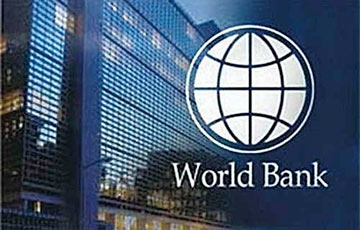World Bank: Belarusians Will Have To Tighten Belts
103- 5.06.2019, 11:14
- 89,201

The Bank experts have made a tough forecast for the Belarusian economy.
The recovery of the Belarusian economy is slowing down due to low productivity growth and deteriorating external conditions, the latest World Bank Economic Outlook for Belarus says. The forecasted medium-term growth rates remain low, below 2%, which is caused by a combination of the Belarusian economy's structural inflexibility and stagnation in the traditional markets of manufacturing and agriculture, tut.by writes.
The World Bank notes that even such a modest forecast on GDP depends on partial – at least at the level of 50 percent – compensation of losses from the so-called "tax maneuver" in Russia, which implies the loss of export duties on oil products, currently included in the Belarusian budget, as well as higher prices of raw materials for Belarusian oil refineries.
"Without such compensation, the growth may slow down further because of possible adjustment of production in the petrochemical sector, while the loss of income will have to be compensated by further adjustment in the fiscal sector, as a result of the fulfillment of debt repayment obligations, which will affect the pace of economic growth," – the experts say.
The growth of public debt, redenominated mainly in foreign currency, as well as uncertainty about the compensation for the "tax maneuver" of Russia and the development of bilateral trade relations between the two countries create risks for the economic development, the experts believe.
"It is important to strengthen the competitiveness and, thus, to increase the exports, expanding its geography, – head of the World Bank in Belarus Alex Kremer notes. – Further improvement of the business environment and intensification of the restructuring of enterprises, especially state-owned ones, could promote innovation and export activities of producers. Otherwise, the only way to solve the problem of public debt will be to reduce budget expenditures and raise taxes."
Inefficiency and contingent liabilities of state-owned enterprises will continue to undermine the efficiency of economic activity. State enterprises continue to freeze out the more productive use of capital and are the main source of fiscal risk. Further restructuring of state-owned enterprises is necessary to expand the space for private sector development, as the growth of small and medium-sized enterprises may bump up against the glass ceiling, given that resources are directed to other, less productive purposes, the report notes.
The Bank experts emphasize the need to strengthen the social protection system for the most vulnerable social groups, to maintain the standard of living of the population, as well as to help people when changing jobs. A key recommendation is to increase the share of social assistance expenditures aimed at supporting people with low incomes.
"In the context of a slowdown in growth, long run measures for maintaining social stability and preventing poverty growth are more relevant than ever before, – World Bank Senior Economist Nitin Umapati says. – One of the drawbacks of the current social protection system is that many working poor households are unable to benefit from the support provided by existing programs based on the need testing criteria. This problem can be solved by expanding the coverage and amount of monthly payments of the state targeted assistance program."










